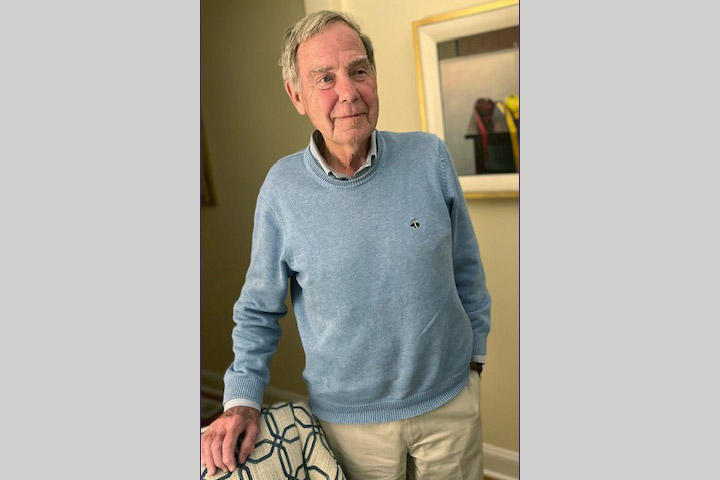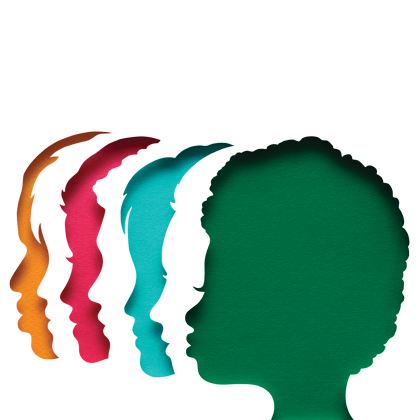Using the Lessons of Recovery in my Pancreatic Cancer Treatment

- Stage I pancreatic cancer
- Chemotherapy with FOLFIRINOX
- Whipple procedure
As a recovering alcoholic, I found that the lessons I learned from my struggles with drinking helped me to face my pancreatic cancer.
It was mid-August of 2020 when I began experiencing severe acid reflux and felt a stabbing pain in my stomach. The pain felt like someone was stabbing me in the stomach with a knife. A CT scan in October detected a tumor in my pancreas. I had a biopsy in December and was diagnosed with stage I borderline resectable pancreatic cancer.
A Treatment Plan and a Big Move
Since I was living in Cape Cod, Massachusetts, at the time of my diagnosis, I began my initial round of treatment at a cancer hospital in Boston. The treatment plan called for 12 rounds of chemotherapy with FOLFIRINOX. Each round began with five hours of chemo in the hospital, followed by another 48 hours of chemo at home through an infusion pump. The chemotherapy comprised a four-ingredient cocktail, but it was primarily fluorouracil. I repeated the treatment every two weeks.
I tolerated the chemotherapy quite well. I had no nausea or diarrhea. I had no loss of appetite. I lost all of my hair, with the exception of my eyebrows. As the chemotherapy wore on, I began experiencing fatigue, but it was not debilitating. I was able to continue my normal lifestyle during the course of my treatment.
During this time, my wife and I made a decision to move to Johns Island, South Carolina, where we had a second home. A friend recommended the Hollings Cancer Center in Charleston, so in early 2021 I met with Dr. David Mahvi, a surgical oncologist at the Medical University of South Carolina (MUSC).
After eight rounds of chemotherapy, my tumor shrank by 90 percent, so we stopped chemo. I underwent a Whipple procedure in June of 2021 with Dr. Mahvi. The procedure was successful. I went back to Cape Cod for the summer, where a local oncologist served as go-between with Dr. Mahvi. When I got back to South Carolina, I met Dr. Toros Dincman, a medical oncologist at MUSC, whom I now see for follow-up. I have had no further treatment, and no evidence of disease.
Leaning on a Mindset of Recovery
I had been in recovery for 15 years at the time of my diagnosis and I believe that being an alcoholic made dealing/coping with the pancreatic cancer and the treatment much easier for me. Although I am not an Alcoholics Anonymous advocate, it does offer some good advice, both applicable to alcoholics and to pancreatic cancer patients. In AA, I learned to live my life one day at a time, and to make the most of each day, which was a mindset that was so helpful during chemotherapy.
AA emphasizes negative triggers—situations that encourage drinking, for example. I approached this philosophy differently, and learned to identify “positive triggers,” or times where I faced a difficult experience but was able to persevere. As an alcoholic, an example of a positive trigger might be attending a cocktail party and not feeling tempted to have a drink. Similarly, if I could make it through the three-day chemotherapy regimen without getting sick or having terrible side effects, I viewed it as a positive trigger.
Likewise, I viewed my hair loss as a good sign. I told myself that if my hair was falling out, then the chemotherapy must be working. I also told myself that after each round of chemo, I was one step closer to the end of my treatment. Focusing on the positive got me through alcoholism and pancreatic cancer. All of these ways of thinking were attitudes I learned during my recovery and they served me well.
Finally, AA believes in a higher power that helps members face their disease and recover from alcoholism. I believe very strongly in God, my higher power. I had faith in him that I could stop drinking, just like I had faith in him that I could defeat pancreatic cancer.
Robert passed away from diabetes complications related to his pancreatic cancer treatment, three and a half years after his diagnosis. Our deepest sympathy to his family.



